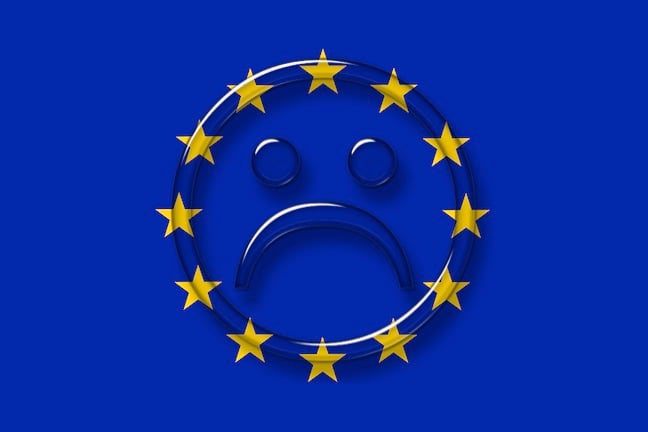Google Decides Europe's Political Ad Rules Are Too Hard To Implement At Scale

Google has decided the European Union's Regulation on Transparency and Targeting of Political Advertising will be so hard to comply with it's better off not trying.
The search and ads giant on Thursday announced that it will stop serving political advertising in the EU sometime before October 2025 – when the Regulation (TTPA) comes into force.
Annette Kroeber-Riel, the big G's veep for government affairs and public policy in Europe, wrote that the TTPA "unfortunately introduces significant new operational challenges and legal uncertainties for political advertisers and platforms."
"For example, the TTPA defines political advertising so broadly that it could cover ads related to an extremely wide range of issues that would be difficult to reliably identify at scale," she wrote. Another concern is the "lack of reliable local election data permitting consistent and accurate identification of all ads related to any local, regional or national election across any of 27 EU Member States."
Kroeber-Riel also noted that "key technical guidance may not be finalized until just months before the regulation comes into effect."
The TTPA was passed in March 2024 and billed as making it easier for voters to recognize political ads and learn who paid for them.
The regs therefore require ad platforms to identify political spots, identify the sponsor, the election or referendum to which they pertain, the amounts paid, and any use of targeting techniques. Targeted ads are only allowed after individuals opt in – separate from any other permissions they've granted.
- Here's how a Trump presidency could change the tech industry
- Judge decides not to block Musk's $1M election giveaway
- China’s Spamouflage cranks up trolling of US Senator Rubio as election day looms
- Meta to build election operations center in Europe to inspect AI content
Other jurisdictions already have laws on the books that require things like keeping records about political ads and making records of who bought and saw them available to the public. Those rules aren't always easy to comply with – ask Meta, which in 2022 copped substantial fines for over 800 infractions of Washington State law.
In 2024 some legislators also decided political ads generated by AI should be flagged so that voters know when humans outsource persuasion to machines.
Google has previously required those who place political ads to provide extra ID info, and says it aims to inform voters and protect election integrity.
But clearly the search and ads giant fears it can't do enough to meet the TTPA's requirements.
Which may be the point of the regulations. Another of Europe's aims is to stop those outside the Union from using online ads to influence elections. If even Google doesn't think it can reliably detect and prevent outside actors from trying to make a point during elections – and fears the consequences of failure – that's a win for Europe. ®
From Chip War To Cloud War: The Next Frontier In Global Tech Competition
The global chip war, characterized by intense competition among nations and corporations for supremacy in semiconductor ... Read more
The High Stakes Of Tech Regulation: Security Risks And Market Dynamics
The influence of tech giants in the global economy continues to grow, raising crucial questions about how to balance sec... Read more
The Tyranny Of Instagram Interiors: Why It's Time To Break Free From Algorithm-Driven Aesthetics
Instagram has become a dominant force in shaping interior design trends, offering a seemingly endless stream of inspirat... Read more
The Data Crunch In AI: Strategies For Sustainability
Exploring solutions to the imminent exhaustion of internet data for AI training.As the artificial intelligence (AI) indu... Read more
Google Abandons Four-Year Effort To Remove Cookies From Chrome Browser
After four years of dedicated effort, Google has decided to abandon its plan to remove third-party cookies from its Chro... Read more
LinkedIn Embraces AI And Gamification To Drive User Engagement And Revenue
In an effort to tackle slowing revenue growth and enhance user engagement, LinkedIn is turning to artificial intelligenc... Read more

